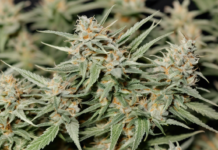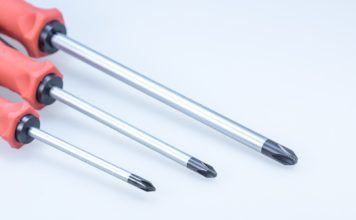Introduction
In recent years, the term “Boss Lady” has gained momentum across various industries, symbolizing strong, resilient, and successful women who exude confidence and leadership qualities in the workplace. While the concept of a Boss Lady is often associated with personal attributes and characteristics, there is another perspective to consider – the influence of genetics on shaping these formidable leaders.
Understanding Boss Lady Genetics
Genetic Predisposition to Leadership: Research suggests that genetic factors play a significant role in shaping an individual’s leadership abilities. Genes associated with traits such as emotional intelligence, extroversion, assertiveness, and resilience can contribute to someone naturally embodying the characteristics of a Boss Lady.
Impact of Neurotransmitters: Neurotransmitters such as serotonin and dopamine have been linked to personality traits that are often associated with effective leadership. Individuals with genetic variations that enhance the functioning of these neurotransmitters may be more inclined towards displaying confidence, decisiveness, and motivation in their roles.
Behavioral Genetics: The field of behavioral genetics explores how our genes influence our behavior and interactions with others. Some individuals may inherit genes that make them more adept at conflict resolution, persuasion, and decision-making, essential skills for a Boss Lady in a professional setting.
Nature vs. Nurture: While genetics play a crucial role, it’s important to note that environmental factors also shape leadership capabilities. A combination of genetic predispositions and nurturing environments can cultivate and amplify the traits that define a Boss Lady.
Nurturing Boss Lady Genetics
Self-Awareness and Personal Growth: Understanding one’s genetic predispositions towards leadership traits is the first step towards nurturing Boss Lady genetics. Self-awareness allows individuals to leverage their strengths and identify areas for development, leading to personal growth and enhanced leadership abilities.
Professional Development: Engaging in professional development opportunities such as leadership workshops, mentorship programs, and ongoing education can further hone the skills derived from Boss Lady genetics. Continuous learning and skill enhancement are vital in maximizing one’s leadership potential.
Seeking Feedback and Mentorship: Feedback from colleagues, supervisors, and mentors can provide valuable insights into how one’s genetic predispositions manifest in the workplace. Mentorship plays a key role in guiding individuals towards leveraging their strengths effectively and navigating challenges with resilience.
Building a Supportive Network: Surrounding oneself with a supportive network of peers, colleagues, and mentors can create a nurturing environment for Boss Lady genetics to flourish. Collaboration, networking, and mentoring relationships are essential for personal and professional growth.
Embracing Diversity and Inclusion: Recognizing the diversity of genetic predispositions towards leadership traits is crucial in fostering an inclusive and equitable workplace. Embracing diversity allows organizations to leverage a wide range of leadership styles and perspectives, contributing to overall success and innovation.
FAQs (Frequently Asked Questions)
- Can Boss Lady genetics be developed over time, or are they solely inherited?
-
While genetics play a role, leadership traits associated with Boss Lady genetics can be cultivated and enhanced through self-awareness, professional development, and mentorship.
-
Are there specific genetic tests to determine one’s predisposition to leadership traits?
-
Currently, there are no specific genetic tests that can pinpoint leadership traits. Behavioral genetics research provides insights into how genes influence behavior, but individual assessments may vary.
-
How can organizations support employees in nurturing their leadership genetics?
-
Organizations can offer leadership development programs, mentorship opportunities, and a supportive work culture that values diverse leadership styles to support employees in maximizing their potential.
-
Do gender and cultural backgrounds influence Boss Lady genetics?
-
Gender and cultural backgrounds can shape how Boss Lady genetics are perceived and expressed. It’s essential to recognize and celebrate the diversity of leadership traits across different demographics.
-
Can individuals without Boss Lady genetics still become successful leaders?
- Absolutely. While genetic predispositions may influence leadership traits, success as a leader is not solely determined by genetics. Hard work, determination, and continual learning are essential factors in achieving leadership success.
Conclusion
Boss Lady genetics encompass a blend of inherited traits and nurtured skills that empower individuals to thrive as confident, resilient, and impactful leaders in the workplace. Understanding the interplay between genetics, personal development, and environmental influences is key to unlocking the full potential of Boss Lady qualities. By embracing diversity, fostering a culture of support and growth, and continuously investing in self-improvement, individuals can harness their genetic predispositions towards leadership and make a lasting impact in their professional endeavors.









